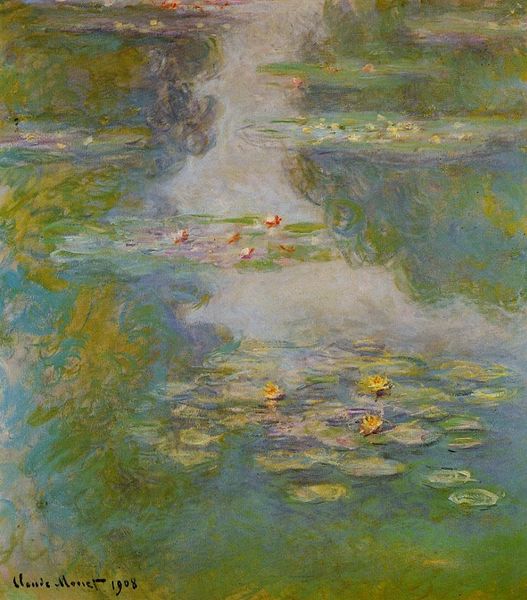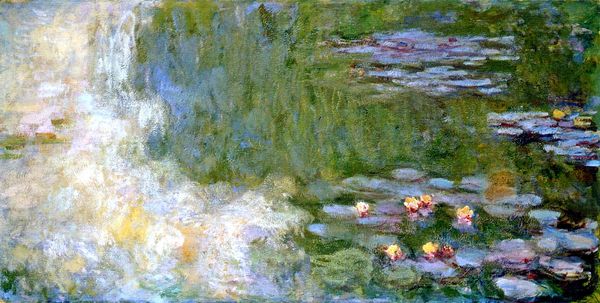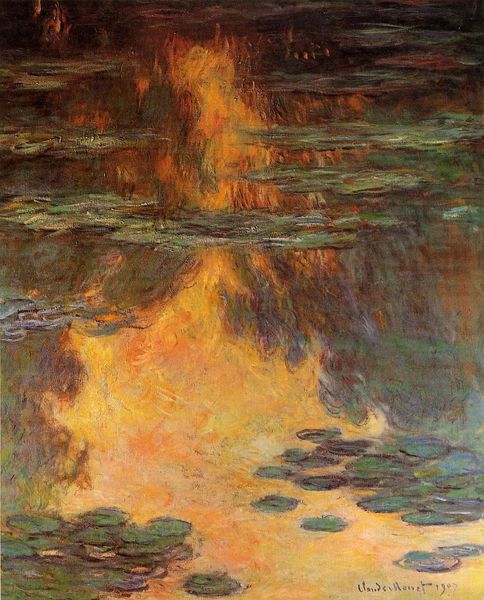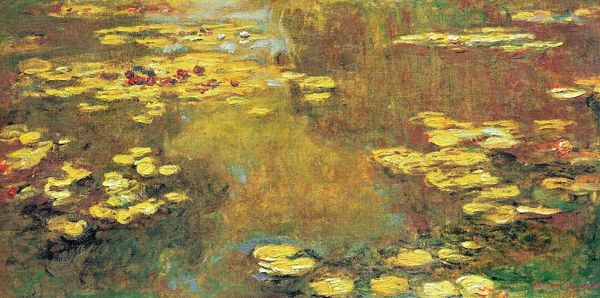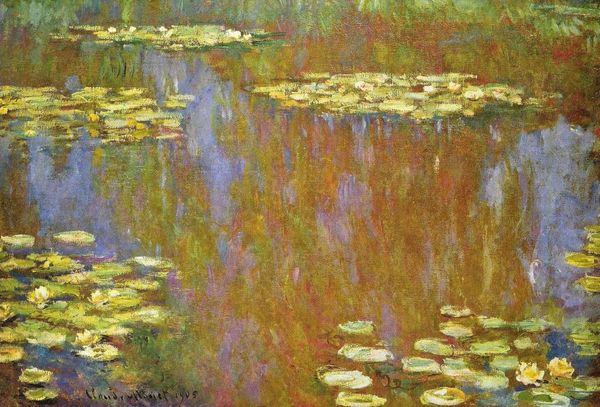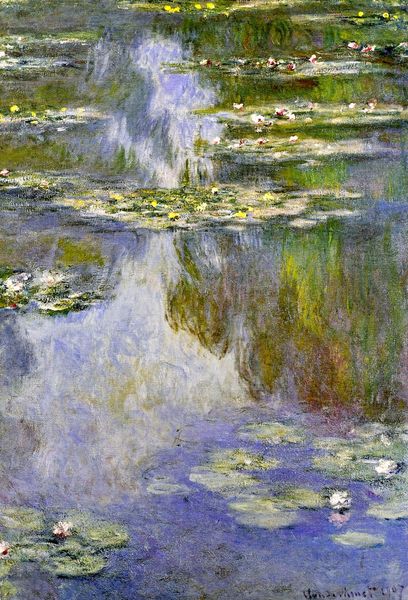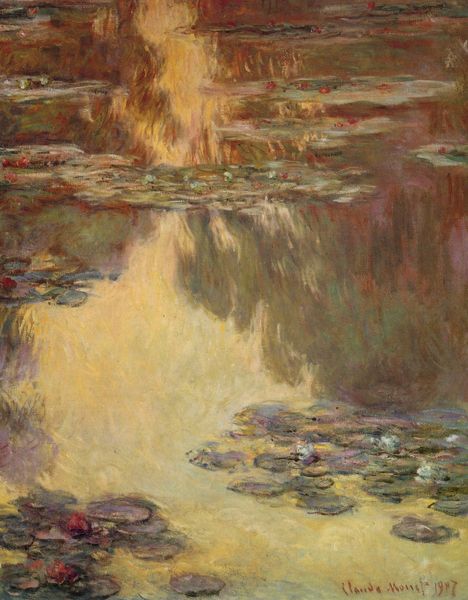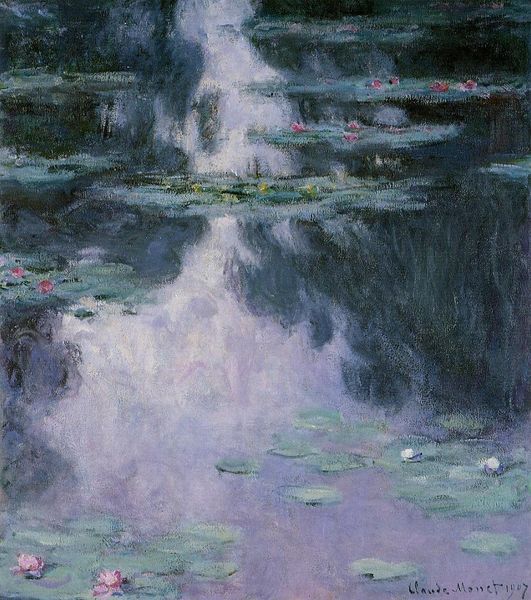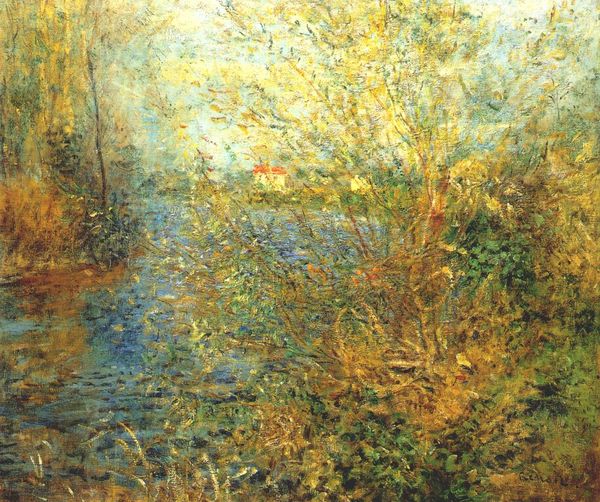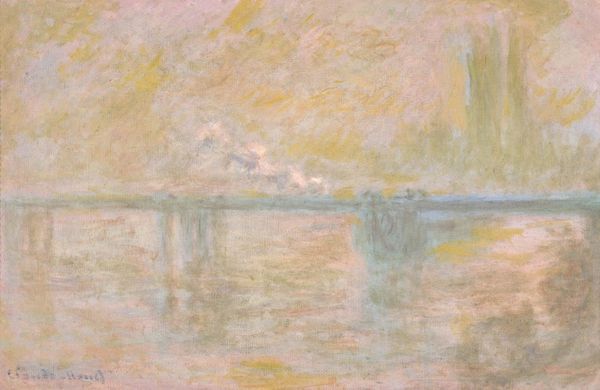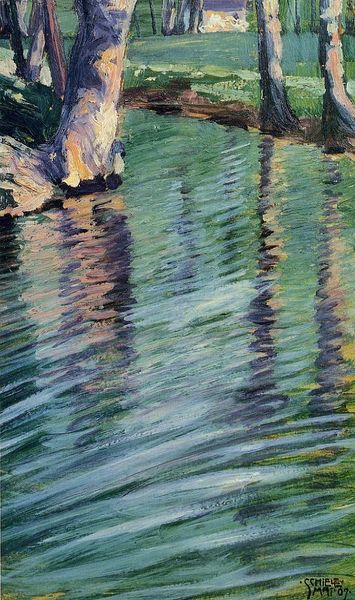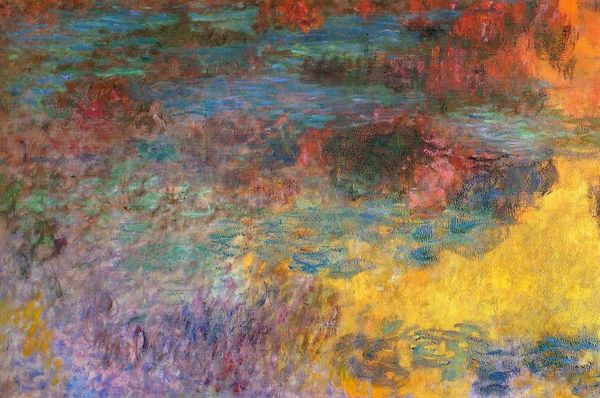
Copyright: Public domain
Editor: So here we have Monet's *Water Lilies*, painted in 1907 using oil paint, of course. It feels almost… monochromatic, with these dominant yellow tones. How do you interpret this work, especially considering its historical context? Curator: I see it as an act of resistance, perhaps even defiance. Monet, painting this idyllic scene while the world hurtled towards the First World War. Can we truly separate art from its socio-political backdrop? Doesn't this serene pond offer a deliberate contrast to the rising industrialisation, to the fracturing social structures, and anxieties brewing across Europe? Consider the inherent privilege required to devote oneself to such a subject in that era. Who *had* access to such tranquil settings? And further, who had the *leisure* to contemplate such environments, and then commit to reproducing it through paint and canvas? Editor: That's fascinating! I'd always seen it as more of an escape, a personal reflection rather than a statement. But looking at it that way, it opens up so many questions about accessibility and class. Curator: Exactly! It prompts us to consider the politics embedded within the seemingly apolitical. Is it truly an innocent observation of nature? Or is it subtly reinforcing existing power structures? The focus is deliberately limited in scope, and in his artistic choices, what do you think he leaves out? Editor: Perhaps, he leaves out the urban decay, the industrial angst, the realities of a rapidly changing world that most people were actually experiencing... It makes me wonder if impressionism itself could be viewed as a form of escapism for the bourgeoisie. Curator: Precisely! This invites a conversation about whose stories are told, and whose are omitted, in art history. This Water Lilies series, and paintings such as this, forces us to consider what impressionism reflects and reinforces in broader cultural narratives of early 20th century Europe. Editor: That’s a completely different way of thinking about it than I was expecting! Thank you.
Comments
No comments
Be the first to comment and join the conversation on the ultimate creative platform.
